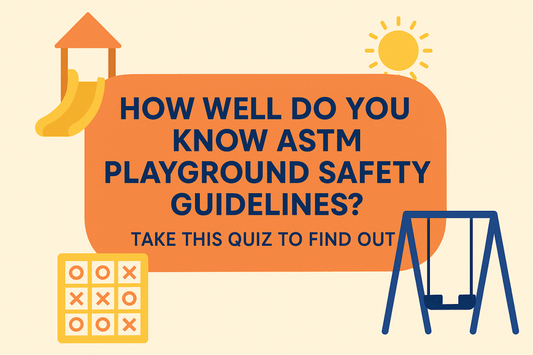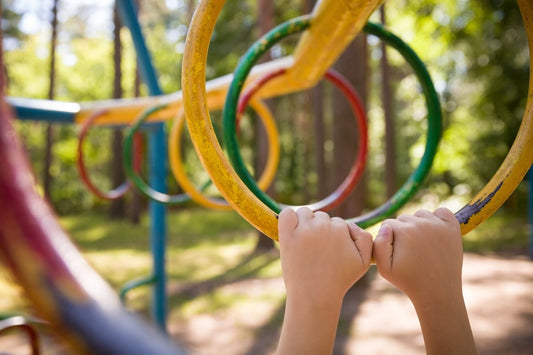
Why Swings are Not Attached to Play Structures on Commercial Playgrounds
Jennie HallShare This Article
When designing commercial playgrounds, safety and practicality are paramount. One noticeable design choice is the separation of swing sets from other play structures. Here’s why this is essential:

Swings require extensive safety use zones to prevent collisions. According to the U.S. Consumer Product Safety Commission (CPSC), swings need a safety zone that extends forward and backward at least twice the height of the swing set. This ensures children do not accidentally walk into the path of moving swings, reducing the risk of injury. If swings were attached to other play structures, these zones would overlap, leading to potential hazards.
Injury Prevention
Swings are often associated with playground injuries, mainly due to falls and collisions. By placing swings separately, the likelihood of accidents decreases significantly. This separation ensures that children are not running into swings while engaging with other equipment, providing a safer play environment.

Space Management
Separate swing structures allow for better space management in playground design. This setup provides flexibility to create diverse play areas that cater to various activities without interference. It also ensures that each piece of equipment has sufficient space for safe use.
Maintenance and Supervision

Isolating swings simplifies maintenance and supervision. Playground staff can more easily inspect and repair swing sets when they are not integrated into larger structures. Additionally, it allows supervising adults to monitor children on swings more effectively, ensuring safer play.
Separating swings from other play structures in commercial playgrounds is a strategic decision that enhances safety, improves space management, and simplifies maintenance and supervision. By understanding these considerations, we can better appreciate the thoughtful design behind our favorite play spaces.


















